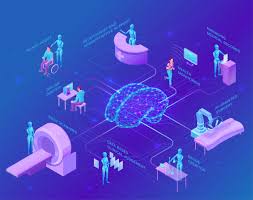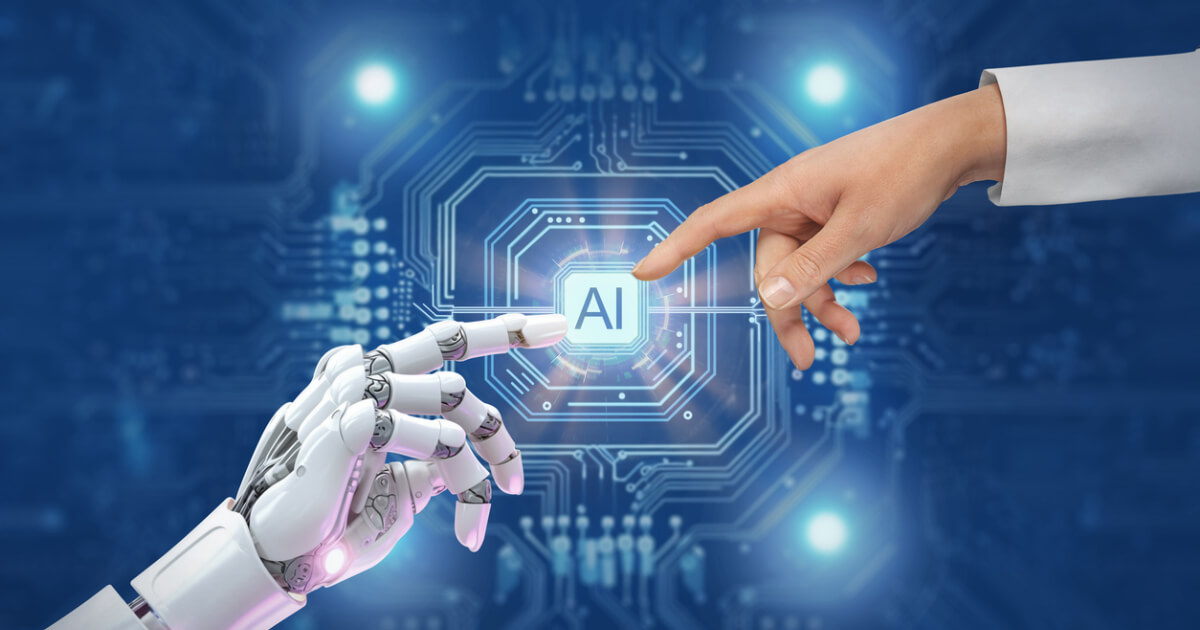Artificial Intelligence in Healthcare: Transforming the Future of Medicine
Artificial Intelligence (AI) is revolutionizing various industries, and healthcare is no exception. By leveraging advanced algorithms and data analytics, AI is enhancing the ability of healthcare providers to deliver more accurate diagnoses, personalized treatments, and improved patient outcomes.
Enhancing Diagnostic Accuracy
One of the most significant impacts of AI in healthcare is its ability to improve diagnostic accuracy. Machine learning algorithms can analyze medical images such as X-rays, MRIs, and CT scans with remarkable precision. These systems are trained on vast datasets, enabling them to identify patterns and anomalies that may be missed by human eyes. For instance, AI has shown promise in detecting early signs of diseases like cancer, which can lead to earlier interventions and better prognoses.
Personalized Medicine
AI also plays a crucial role in the development of personalized medicine. By analyzing a patient’s genetic information alongside their medical history and lifestyle factors, AI can help tailor treatment plans that are specifically designed for an individual’s unique needs. This approach not only enhances treatment effectiveness but also minimizes potential side effects.
Streamlining Administrative Tasks
Apart from clinical applications, AI is transforming administrative processes within healthcare facilities. Natural language processing (NLP) technologies can automate routine tasks like scheduling appointments, managing patient records, and processing insurance claims. This automation frees up valuable time for healthcare professionals to focus on patient care rather than paperwork.
Improving Patient Monitoring
The integration of AI with wearable technology has opened new avenues for continuous patient monitoring. Devices equipped with sensors can track vital signs such as heart rate and blood pressure in real-time. AI algorithms analyze this data to detect any irregularities or potential health issues before they become critical. This proactive approach allows for timely interventions and reduces hospital readmissions.
Challenges and Ethical Considerations
Despite its many benefits, the implementation of AI in healthcare comes with challenges and ethical considerations. Data privacy is a significant concern as sensitive health information must be protected from breaches. Additionally, there is a need for transparency in how AI systems make decisions to ensure trust among patients and practitioners.
The potential for bias in AI algorithms also requires careful attention. If the training data used for these systems lacks diversity or contains inherent biases, it could lead to unequal treatment outcomes across different populations.
The Future of AI in Healthcare
The future of artificial intelligence in healthcare looks promising as technology continues to advance rapidly. Ongoing research aims to refine existing applications while exploring new possibilities such as robotic surgery assistants or virtual health coaches powered by conversational agents.
As we move forward into this exciting era where technology meets medicine head-on—collaboration between technologists & medical professionals will be essential—to harness its full potential responsibly & ethically—for better global health outcomes!
Exploring the Role and Future of Artificial Intelligence in Healthcare: Key Questions Answered
- What is the future of AI in healthcare?
- How is AI used in healthcare 2023?
- What is an example of AI in health?
- What are the pros and cons of AI in healthcare?
- How is AI being used in healthcare?
- What is the future of artificial intelligence in healthcare?
What is the future of AI in healthcare?
The future of AI in healthcare is poised to be transformative, with the potential to significantly enhance patient care, streamline operations, and advance medical research. As AI technology continues to evolve, it is expected to further improve diagnostic accuracy through advanced imaging analysis and predictive analytics, allowing for earlier and more precise interventions. Personalized medicine will become more prevalent as AI systems analyze vast amounts of genetic and clinical data to tailor treatments to individual patients’ needs. Additionally, AI-driven automation of administrative tasks will free up healthcare professionals to focus more on direct patient care. However, the successful integration of AI into healthcare will require addressing challenges such as data privacy, ethical considerations, and the need for transparent algorithms. With ongoing advancements and careful implementation, AI has the potential to revolutionize healthcare delivery and outcomes in the coming years.
How is AI used in healthcare 2023?
In 2023, artificial intelligence is being utilized in healthcare to significantly enhance patient care and operational efficiency. AI-driven tools are employed for diagnostic purposes, with machine learning algorithms analyzing medical images to detect conditions such as tumors or fractures with high accuracy. Additionally, AI is used in predictive analytics to forecast patient outcomes and disease progression, allowing healthcare providers to tailor personalized treatment plans. Natural language processing (NLP) technologies assist in managing electronic health records by automating data entry and retrieval processes, thus reducing administrative burdens on medical staff. Furthermore, AI-powered virtual assistants are increasingly used for patient engagement, providing reminders for medication adherence and offering basic health information. Overall, AI’s integration into healthcare systems is leading to more precise diagnoses, improved patient monitoring, and streamlined operations.
What is an example of AI in health?
One prominent example of artificial intelligence in healthcare is the use of AI-powered diagnostic tools in radiology. These tools utilize machine learning algorithms to analyze medical images, such as X-rays, MRIs, and CT scans, with remarkable accuracy. For instance, AI systems can detect early signs of diseases like cancer by identifying patterns and anomalies that might be overlooked by human radiologists. This capability not only enhances diagnostic precision but also enables earlier intervention, which can significantly improve patient outcomes. By assisting healthcare professionals in making more informed decisions, AI in radiology is transforming the way diseases are diagnosed and treated.
What are the pros and cons of AI in healthcare?
Artificial intelligence in healthcare offers a range of advantages and disadvantages. On the positive side, AI can significantly enhance diagnostic accuracy by analyzing large datasets and identifying patterns that may be missed by human practitioners. This leads to earlier detection of diseases and more personalized treatment plans, improving patient outcomes. AI also streamlines administrative tasks, reducing the burden on healthcare professionals and allowing them to focus more on patient care. However, there are challenges associated with AI in healthcare, such as concerns over data privacy and security, as sensitive health information must be protected from breaches. Additionally, there is the potential for bias in AI algorithms if they are trained on non-representative datasets, which could lead to unequal treatment outcomes. Ethical considerations also arise regarding transparency in AI decision-making processes, necessitating careful oversight to ensure trust and fairness in healthcare applications.
How is AI being used in healthcare?
AI is being utilized in healthcare in numerous transformative ways, enhancing both clinical and administrative functions. Clinically, AI algorithms are employed to analyze complex medical data such as imaging scans, lab results, and patient histories to assist doctors in making more accurate diagnoses and treatment plans. For instance, AI systems can detect early signs of diseases like cancer from radiology images with high precision. In terms of personalized medicine, AI helps tailor treatments to individual patients by considering genetic information and lifestyle factors. Administratively, AI streamlines operations by automating routine tasks such as scheduling appointments, managing patient records, and processing insurance claims. Additionally, AI-powered wearable devices monitor vital signs in real-time, alerting healthcare providers to potential health issues before they become critical. Overall, AI is significantly enhancing the efficiency and effectiveness of healthcare delivery.
What is the future of artificial intelligence in healthcare?
The future of artificial intelligence in healthcare is poised to be transformative, with AI technologies expected to play a pivotal role in advancing medical research, improving patient care, and optimizing operational efficiencies. As AI systems become more sophisticated, they will likely facilitate the development of personalized medicine by analyzing vast datasets to tailor treatments to individual genetic profiles and health histories. Additionally, AI-driven diagnostic tools are anticipated to enhance early detection of diseases and improve accuracy in interpreting medical images. In the realm of patient care, AI could enable continuous monitoring through wearable devices, allowing for real-time health assessments and timely interventions. Moreover, AI’s integration into administrative functions promises to streamline workflows, reduce costs, and alleviate the burden on healthcare professionals by automating routine tasks. However, as these technologies evolve, addressing ethical considerations such as data privacy and bias will be crucial to ensuring equitable and trustworthy applications of AI in healthcare.



